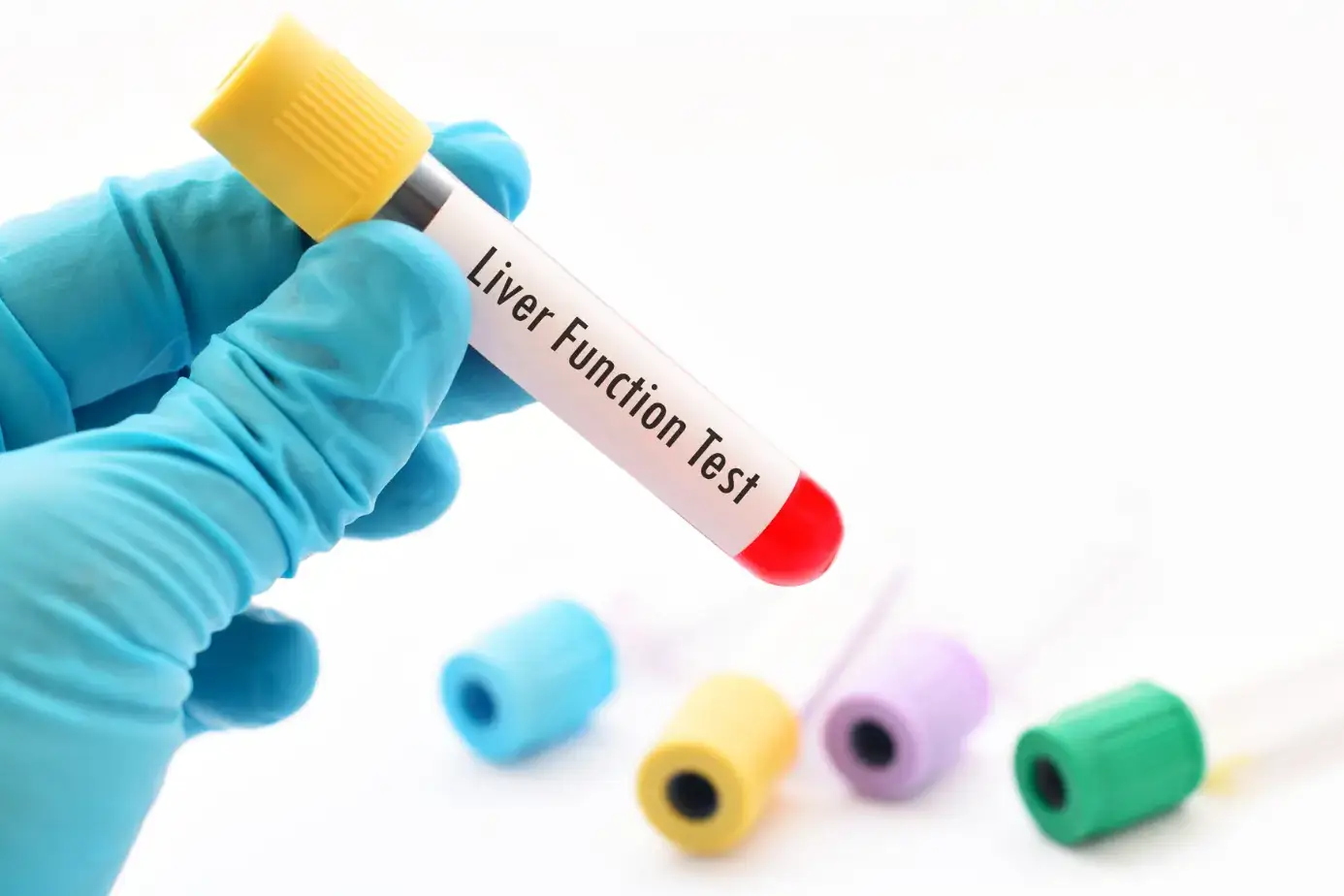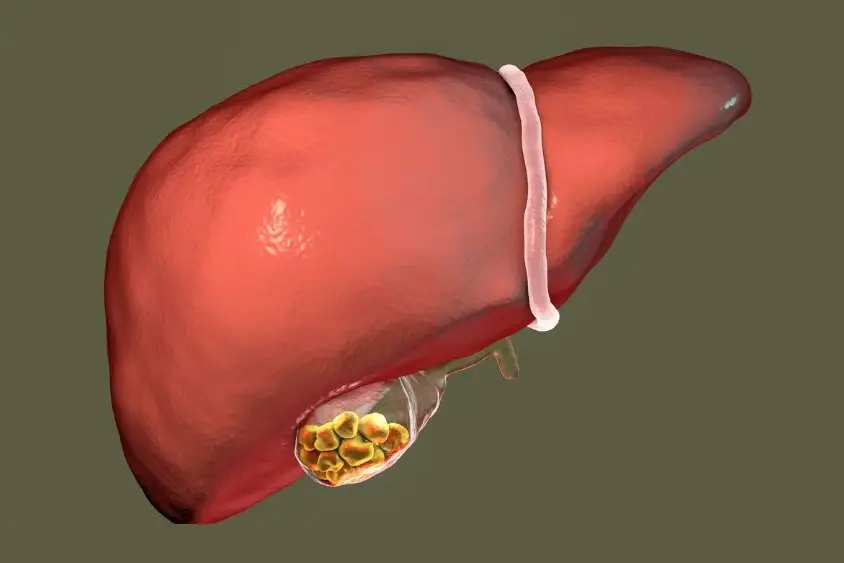The hepatitis B vaccine is a key tool for protecting your health and your loved ones. It’s safe and effective against the hepatitis B virus, which can cause a serious liver infection. If you’re a parent or an adult looking to boost your immunity, knowing about the hepatitis B vaccine is crucial.
Table of Contents
ToggleThe virus spreads through contact with infected blood or fluids. Without the vaccine, you could get chronic hepatitis B. This can lead to liver damage, cirrhosis, and even liver cancer. Getting vaccinated greatly lowers your risk of getting this serious illness and keeps you healthy for the long term.
All infants, children, and adults at high risk should get the hepatitis B vaccine. It usually takes 2-4 shots for full protection. Make sure to follow the recommended schedule for the best results. Your healthcare provider can tell you the best vaccination plan for you or your child.
Why Get Vaccinated Against Hepatitis B?
Hepatitis B is a serious virus that attacks the liver. It can cause a short-term illness or a long-term infection. If not treated, chronic hepatitis B can lead to liver damage, liver cancer, and even death.
Understanding the Severity of Hepatitis B
Symptoms of hepatitis B include fever, fatigue, and jaundice. But, many people don’t show any signs. Chronic hepatitis B can slowly damage the liver over time. It’s important to see a hepatologist regularly for treatment.
Transmission Routes of Hepatitis B Virus
The virus spreads through infected blood, body fluids, or sex without protection. Babies can get it from their mothers during birth. Knowing how it spreads helps prevent it.
Getting vaccinated is the best way to protect against hepatitis B. It greatly lowers the risk of getting this serious illness. This ensures your health and well-being for the long term.
Hepatitis B Vaccine Overview
The hepatitis B vaccine is key in fighting this serious liver infection. It’s important to know the right dosage schedule for kids and adults. This ensures everyone gets the protection they need.
Dosage Schedule for Infants and Children
Infants get the hepatitis B vaccine in 2-4 shots. The first shot is at birth, followed by shots at 1-2 months and 6-18 months. This schedule helps protect them from the virus early on.
Recommendations for Adults
The hepatitis B vaccine is also for adults who haven’t had it before. People 59 or younger without immunity should get vaccinated. It usually takes 2-3 shots.
Adults 60 and older should get it if they’re at risk or want extra protection. Knowing about the vaccine helps you protect yourself and your loved ones from this serious disease.
Talking to Your Healthcare Provider
Talking to your healthcare provider is key to protecting yourself or your loved ones from hepatitis B. They know how to help you get the hepatitis B vaccine and answer your questions. It’s important to have an open and informative conversation with them.
Your healthcare provider can tell you the right dosage schedule based on your age and health. They can also check if there are any hepatitis b vaccine contraindications that might mean you need to wait or change your vaccination plan.
They can also talk about possible hepatitis b vaccine side effects. They’ll explain the risks and benefits, and how rare serious reactions are. This can help you decide if getting vaccinated is right for you.
- Talk about the recommended vaccination schedule for your age and health.
- Ask about any reasons to delay or change the vaccine plan.
- Discuss any worries you have about side effects or reactions.
- Work with your healthcare provider to make a vaccination plan that fits your needs.
Good communication with your healthcare provider is crucial for getting the most out of the hepatitis B vaccine. Their knowledge and advice can make the process easier and give you peace of mind.
Risks and Side Effects of Hepatitis B Vaccination
The hepatitis B vaccine is very safe. Most people only get mild side effects like soreness, swelling, or redness where they got the shot. Some might feel a fever or be a bit tired. But serious problems are very rare, happening in about 1 in 600,000 shots.
This vaccine doesn’t contain any blood products and can’t give you hepatitis B. It’s a safe way to protect yourself and your loved ones from a serious liver disease.
Common Side Effects
- Soreness, swelling, or redness at the injection site
- Fever
- Fatigue
Rare Serious Reactions
Severe allergic reactions are very rare, happening in about 1 in 600,000 doses. This makes the hepatitis B vaccine one of the safest vaccines out there.

If you’re worried about the hepatitis B vaccine, talk to your healthcare provider. They can give you the latest info on its safety and how well it works.
What if There’s a Serious Reaction?
The hepatitis B vaccine is usually safe and well-liked. But, there’s a small chance of a serious reaction. Knowing what to do in such cases is key for your safety.
If you or your child has a bad allergic reaction, like hives or trouble breathing, call 9-1-1 right away. These signs could mean you’re having anaphylaxis, a serious issue that needs quick action.
Even if the reaction isn’t severe, tell your doctor about it. They can figure out what’s happening and help you. The Vaccine Adverse Event Reporting System (VAERS) also tracks vaccine reactions. This helps spot any safety problems early.
Remember, serious reactions to the hepatitis B vaccine are very rare. But, knowing the signs and what to do is important. With your doctor’s help, you can get the right care if something serious happens.
The National Vaccine Injury Compensation Program
If you had a serious reaction after getting the hepatitis B vaccine, you might be able to get money help. The National Vaccine Injury Compensation Program (VICP) was made to help people hurt by vaccines, like the hepatitis B vaccine.
The VICP makes it easier to file a claim for vaccine injuries. It helps people get the support they need. Here’s what you should know about this program:
- Eligibility: The VICP helps with injuries from vaccines, including the hepatitis B vaccine. You must meet certain criteria and file your claim within two years of getting vaccinated.
- Filing a Claim: You can file a claim online or call the VICP for help. You’ll need to send in medical records and information about your injury and its effects on your life.
- Compensation: If your claim is accepted, the VICP can give you money for medical bills, lost wages, and other costs. The goal is to help those hurt by vaccines without making them bear the cost alone.
The National Vaccine Injury Compensation Program is a big help for those hurt by the hepatitis B vaccine. Knowing your rights and how to file a claim can get you the support and money you need.
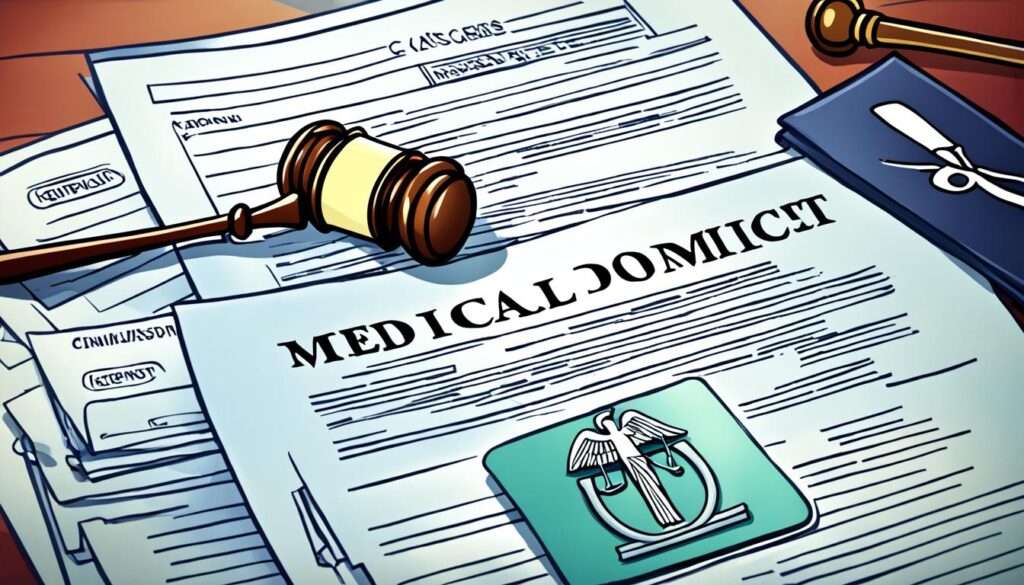
Hepatitis B Vaccination: A Crucial Step for Protection
Getting vaccinated against hepatitis B is key to keeping you and your loved ones safe. The vaccine gives you long-lasting protection against a serious liver disease. It greatly lowers your chance of getting hepatitis B and its severe complications.
The hepatitis B vaccine has many benefits. It not only shields you from the virus but also stops it from spreading in your family and community. This is especially important for babies and young kids, who are more likely to get a chronic infection if they catch the virus.
The role of the hepatitis B vaccine is huge. This disease can be deadly and cause liver damage, cirrhosis, and even liver cancer. By getting vaccinated, you’re making a big step to keep yourself and others safe.
Everyone should get the hepatitis B vaccine, no matter their age or risk level. It’s a safe and effective way to avoid this disease and its problems. So, don’t wait – talk to your doctor about getting vaccinated today. It’s a key move towards a healthier life.
Hepatitis B Vaccine Safety and Effectiveness
The hepatitis B vaccine is safe, with over 1 billion doses given worldwide. Groups like the World Health Organization and the CDC have shown it works well. They prove it stops hepatitis B infections.
Extensive Safety Studies and Monitoring
Many studies have found no link to sudden death, autism, or other brain issues. The vaccine is watched closely for any bad effects. This keeps it safe for people of all ages.
- The hepatitis B vaccine is safe for babies and grown-ups.
- Health groups keep an eye on it to make sure it stays safe.
- No solid science links the vaccine to serious health problems, clearing up wrong ideas.
The hepatitis B vaccine is a key way to protect against a serious disease. Knowing it’s safe and works well helps you make smart choices. This way, you and your loved ones can stay healthy.
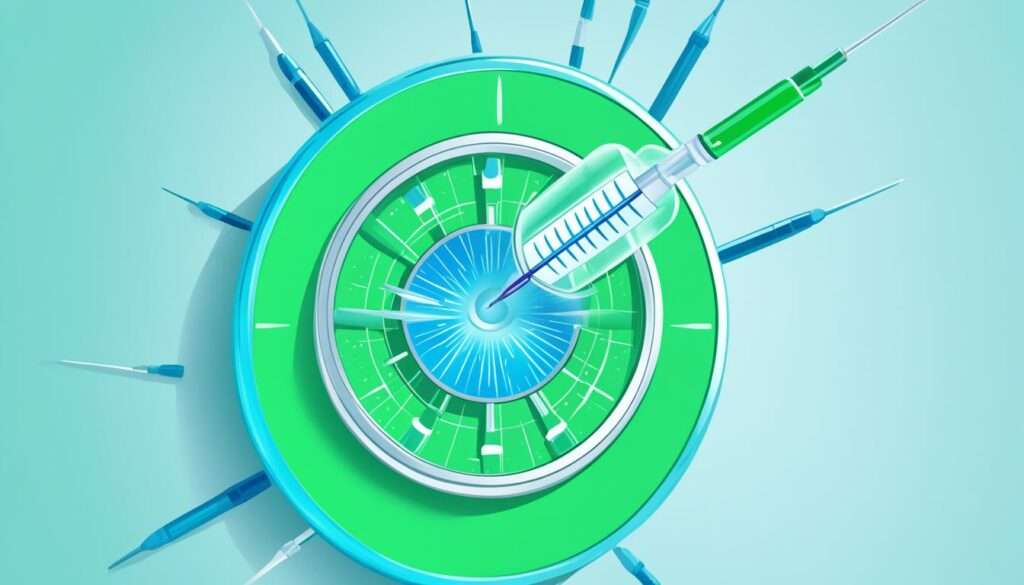
Protecting Newborns and Young Children
Vaccination against hepatitis B is key for newborns and young kids. Before the hepatitis B vaccine was common, about 18,000 kids in the U.S. got the virus by age 10. Babies can get hepatitis B from their moms during birth or from family members. Giving the first vaccine shot at birth is the best way to protect against this serious illness.
The Importance of Early Vaccination
Early vaccination is crucial for hepatitis B prevention in babies and young kids. The vaccine comes in three shots, with the first one given within the first day of life. This early action builds immunity and lowers the chance of getting hepatitis B young.
Early vaccination against hepatitis B is key for kids’ health and safety. By making sure your child gets the recommended shots, you protect them from this serious disease.
Hepatitis B Vaccine for Teenagers and Adults
The hepatitis B vaccine is key to fighting this dangerous virus. It’s advised for all teens and adults up to 60 who haven’t had the vaccine before. Those 60 and older should think about getting it if they’re at higher risk or want extra protection.
Getting vaccinated is the best way to avoid hepatitis B. This virus can cause serious liver problems, liver cancer, and even death. The https://www.immunize.org/askexperts/experts_hepb.asp site explains why the vaccine is crucial for teens and adults. It talks about how it works, its safety, and how well it protects.
Protecting Yourself at Any Age
It doesn’t matter if you’re young or old, the hepatitis B vaccine can keep you safe. It’s safe, effective, and easy to get. So, it’s a wise move for anyone looking to lower their risk of getting this serious disease.
If you’re not sure about the vaccine or have questions, talk to your doctor. They can help you understand your vaccination needs and guide you through the process.
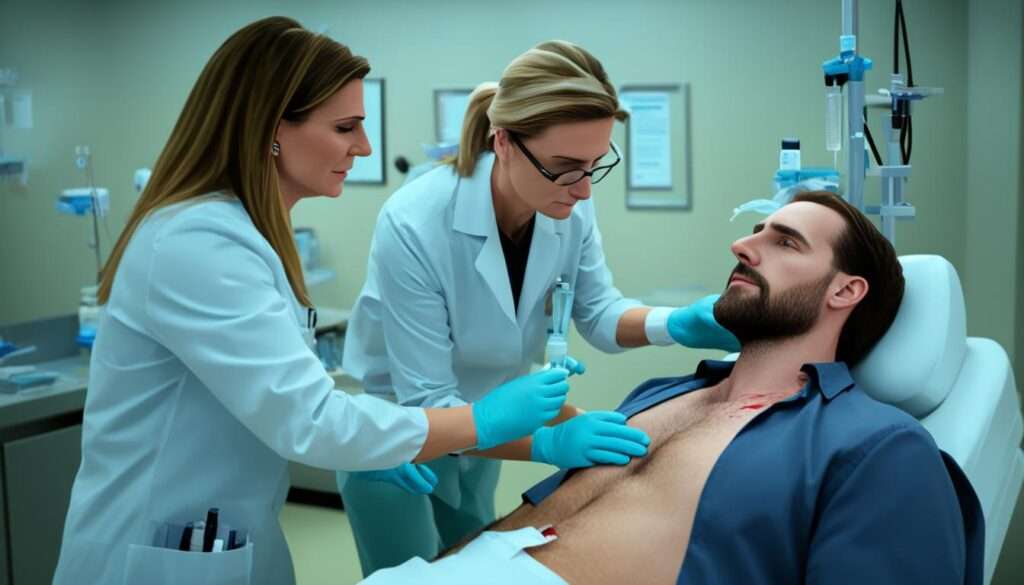
Vaccination for High-Risk Activities
- Activities like tattoos, piercings, or risky sexual behavior make the vaccine more important for you.
- These actions raise your chance of getting the hepatitis B virus. So, getting vaccinated is key to keeping you safe.
- Talk to your doctor about getting vaccinated if you do any high-risk activities.
Being informed and getting vaccinated can protect your health. It lowers your risk of getting hepatitis B, no matter your age or lifestyle. https://www.immunize.org/askexperts/experts_hepb.asp
Conclusion
Getting vaccinated against hepatitis B is key to keeping you and your loved ones safe. The vaccine is safe, effective, and reliable. It protects you from a serious liver disease that could be life-threatening.
Talking to your healthcare provider about the hepatitis B vaccine is a smart move. They can help you understand the vaccine schedule and answer any questions. This way, you and your family can stay safe from this preventable illness.
The choice to get vaccinated is not just for you, but for everyone around you. By getting vaccinated, you help not just yourself, but also your community. Let’s work together to fight hepatitis B and make the world a healthier place for everyone.
FAQ
What is hepatitis B and how can it be prevented?
Hepatitis B is a serious liver disease caused by the hepatitis B virus. The vaccine is safe and effective to prevent it. It’s given to infants at birth, kids up to 18, and adults at high risk.
What are the symptoms and complications of hepatitis B?
Hepatitis B can cause short-term illness with symptoms like fever, fatigue, and jaundice. It can also lead to a chronic infection. This can cause liver damage, liver cancer, and even death.
How is hepatitis B transmitted?
The virus spreads through infected blood, body fluids, or unprotected sex. Babies can get it from infected mothers.
What is the hepatitis B vaccine dosage schedule?
The vaccine is given in 2-4 shots. Babies get the first dose at birth, then more shots at 1-2 months and 6-18 months. Adults 59 or younger who haven’t had the vaccine should get it too.
What should I discuss with my healthcare provider about the hepatitis B vaccine?
Talk to your healthcare provider about the vaccine. They can explain the dosage schedule, talk about side effects, and check if you need to wait before getting vaccinated.
What are the potential side effects of the hepatitis B vaccine?
Side effects include soreness, swelling, or redness at the shot site, fever, and fatigue. Serious allergic reactions are very rare.
What should I do if I experience a severe reaction to the hepatitis B vaccine?
If you have a severe allergic reaction, like hives or trouble breathing, call 9-1-1 right away. Tell your healthcare provider about any other concerning symptoms.
What is the National Vaccine Injury Compensation Program (VICP)?
The VICP is a program that helps people who were hurt by certain vaccines, including the hepatitis B vaccine. You must file a claim within a certain time, usually two years.
Why is vaccination against hepatitis B important?
Vaccinating against hepatitis B protects your health and your loved ones. It gives long-lasting protection against a serious liver disease.
How safe and effective is the hepatitis B vaccine?
The vaccine is very safe, with over 1 billion doses given worldwide. Studies show it’s both safe and effective. There’s no link to autism or other disorders.
Why is early vaccination against hepatitis B important for newborns and young children?
Giving the first vaccine dose at birth is key to protecting against this serious illness. Before the vaccine, many kids in the U.S. got infected by age 10.
Who should get the hepatitis B vaccine?
All teens and adults up to 60 should get the vaccine if not already vaccinated. Those 60 and older should consider it if at risk or wanting protection.
About The Author

Medically reviewed by Dr. Nivedita Pandey, MD, DM (Gastroenterology)
Senior Gastroenterologist & Hepatologist
Dr. Nivedita Pandey is a U.S.-trained gastroenterologist and hepatologist with extensive experience in diagnosing and treating liver diseases and gastrointestinal disorders. She specializes in liver enzyme abnormalities, fatty liver disease, hepatitis, cirrhosis, and digestive health.
All content is reviewed for medical accuracy and aligned with current clinical guidelines.
About Author | Instagram | Linkedin



